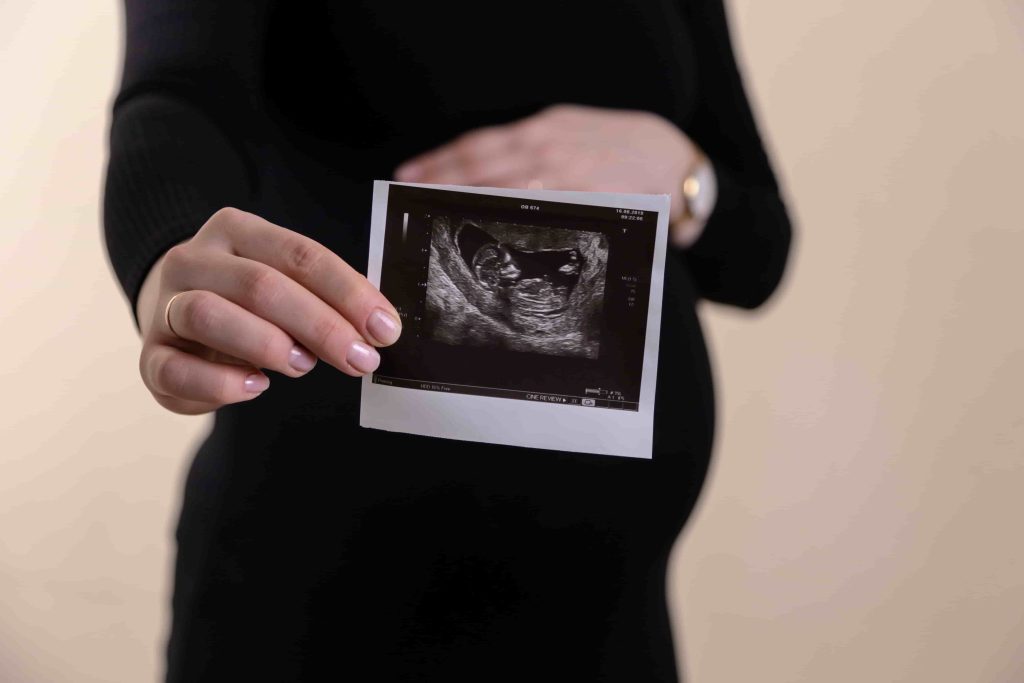
Clients of reproductive clinics on the way to the birth of a baby overcome not only physiological, but also psychological problems. For the sake of the opportunity to take your own baby in your arms, you can endure as many procedures as you like. But those who need the services of a surrogate mother are often occupied with the question: does the surrogate mother share DNA with their child? The answer to this question is yes and no. In order for future parents to receive the most complete answer to the question, does the surrogate mother share DNA we will cover the issue in full in this article. It will also become clear from the material can a surrogate mother be a relative.
Surrogate mother’s DNA. Is it transferred to the fetus?
Important! To immediately dispel your doubts, we answer: Surrogate mothers are not related to the gestating fetus. Which means the surrogate mother does NOT share DNA with your child.
To understand the process, let us describe the roles of participants in the program involving a surrogate mother:
- Future mother. If her eggs are used to create an embryo, then she will be related by blood to the child. If using a donor egg, the child will be related only to the father.
- Future father. If his spermatozoa are used to create an embryo, then he will be related by blood to the child. If donor sperm is used, then the child will be related only to the mother.
- Surrogate mother. A woman who carries an embryo transferred into her uterus and gives birth to a child to future parents.
As you can see from the list, the surrogate mother does NOT share DNA with a baby. She is carrying a fetus created from the biomaterials of two other people. Before the cases of kinship between a surrogate mother and a child took place. This was because the surrogate mother was also an egg donor at the same time. In this case, the answer to the question does the surrogate mother share DNA was a definite “yes”. Currently, this approach is no longer practiced.
However, even despite the rejection of the above practice, the issue does the surrogate mother share DNA is not quite unambiguous. According to recent studies examining does the surrogate mother share DNA, managed to find out: some cells can overcome the placental barrier, which means they can contact the baby. Does this interaction affect the chromosome set of the child? To some extent. Will the surrogate mother share DNA with a child in this case? No!
Under some measure of influence, we mean the creation of conditions for its development. That is why future parents strive to provide the surrogate mother with physical and psychological comfort: good nutrition, timely medical care, and reimbursement of expenses. A positive emotional background and a high quality of life increase the likelihood of a favorable pregnancy. This means that your child will develop well. Does it matter in this case whether the DNA of the surrogate mother is transferred in the amount of several cells per trillion cells with the DNA of the parents or one of the parents? No.
Many are wondering whether the DNA of the surrogate mother is transferred if the chromosome set of the fetus can be examined by taking blood from the woman carrying it. If there is a transfer of fetal DNA to a surrogate mother, then her DNA can also be transferred to the fetus? No. The difference is that the source of the fetal DNA in the mother’s blood is the waste products of the fetus. While the sources of DNA of the woman carrying it do not enter the bloodstream of the fetus.
The only thing that really matters is blood type and Rh factor of the surrogate mother and the child. The fact is that the mismatch of the Rh factor in a pregnant woman and the fetus can have a very negative impact on the health of the latter. If the surrogate mother is Rh negative and the fetus is positive, then the body of the surrogate mother will begin to produce antibodies to its blood. The antibodies can attack and kill the baby’s red blood cells. Therefore, it is important to establish the Rh factor of surrogate mothers to eliminate the Rh conflict. This question is much more serious than whether the DNA of the surrogate mother is transferred.
The question of rhesus has nothing to do whether the surrogate mother will share DNA. No, she will not. The interaction of blood cells is not identical to the exchange of DNA.
Another common question: can a surrogate mother be a relative. The answer is unequivocal: yes, she can. Feskov Human Reproduction Group has a special program with your own surrogate mother. Will the surrogate mother share DNA with a child in this case? Again, no, as the egg will be used either from the expectant mother or from a donor. From their side Feskov Human Reproduction Group guarantee that they will prepare your surrogate mother for pregnancy so that your own biological child will be born healthy.